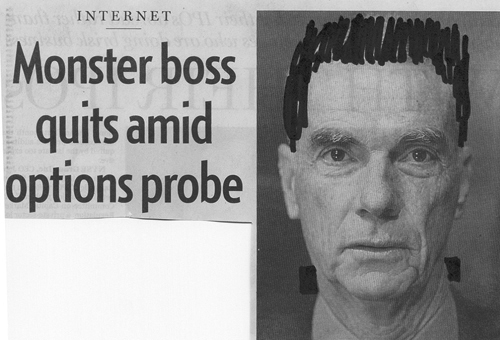There’s been quite a debate on the Inside PR podcast about why public relations practitioners rank near the bottom of any list of trusted professions (usually right alongside lawyers and politicians.)
The discussion started with a question in episode 101 asked by Rayanne Langdon . It’s carried on over several episodes. And yes, I’ve contributed my 2 cents to it along the way .
Bottom line for me: PR should not reference the legal maxim that every person has the right to a defence in court and argue that "every client deserves public relations representation." No they don’t. Some people just do bad things. And the best public relations advice to them is to own up and make good.
There are industries that refuse to do this. They play for time, using the profits from their morally dubious activities to pave the way for them to transition their companies into other industries. Yes, I’m thinking tobacco. And I abhor the fact that we allow these companies to continue to produce something that incontestably kills people every single day. My view is that they do not deserve public relations counsel and Terry Fallis (who shares this view) and I have refused assignments from tobacco companies when they have come calling.
So, am I claiming that I have the key to good ethics. Heck no. But I like the argument that Julie Rusciolelli has advanced . Every person should be prepared to state their reasons for accepting (or not accepting) a client assignment. Not everyone may agree with the reasons. But over time we will respect people who clearly and honestly argue their positions. And we will also be able to identify and isolate the bad apples, ensuring that they don’t contaminate the entire PR industry.
OK. So that’s easy for me to say. I own my own PR company. The only person I have to answer to is myself. (Well, not quite. I actually have to answer to every employee as she/he decides every morning whether they want to work for my company. But that’s a digression.)
Rayanne Langdon, who you may recall started the Inside PR discussion, has posted a comment on Michael Allison’s post on this issue. Rayanne’s comment:
I’ve already heard stories from some of my classmates that make me cringe. But, I guess I’m the stickler for ethics–being the one who started the IPR discussion. Everyone hates me for it! Hah.
Thankfully, I don’t feel I’ve been put in any compromising situations yet, but I don’t know what I would have done if I was. As bad as it sounds, it seems almost rude to stand your ethical ground and refuse work at this point. Do you know what I mean?
I know how Rayanne feels. It’s tough to be in a situation in which you feel you are at odds with people who have some authority over you. So, here’s my advice to Rayanne and other young PR practitioners:
- If someone asks you to do something that strikes you as ethically dubious, state your view clearly. Ask the other person to respond. Consider their response. Ask for time to think about it.
- If you come to see the other person’s point of view, then you may find that you have learned something and you can do what they’ve requested.
- If, on the other hand, you still feel that you cannot do what has been asked of you, stand your ground! The good people in life don’t compromise their fundamental principles. Once you start to slide, it’s hard to regain solid ground. So, don’t start.
That’s the advice I’d offer. If young PR practitioners (or anyone for that matter) follow it, I’ll respect them for it. And if the people in my firm ever find me offside with the views I’ve stated here, I hope they’ll call me out on it.


 I’ve been following the discussion about astroturfing
I’ve been following the discussion about astroturfing  Now, Kami Huyse has published an
Now, Kami Huyse has published an 
 I thought the 7:15 start to Monday was tough. Today, we’re going at it 15 minutes earlier. But at least a continental breakfast is included. I’m planning on joining
I thought the 7:15 start to Monday was tough. Today, we’re going at it 15 minutes earlier. But at least a continental breakfast is included. I’m planning on joining  Well,
Well,  I’ll close out my morning with Jody Humble’s presentation on How the ancient art of narrative can inspire culture change. Jody is the communication manager who worked with FedEx Canada’s President
I’ll close out my morning with Jody Humble’s presentation on How the ancient art of narrative can inspire culture change. Jody is the communication manager who worked with FedEx Canada’s President